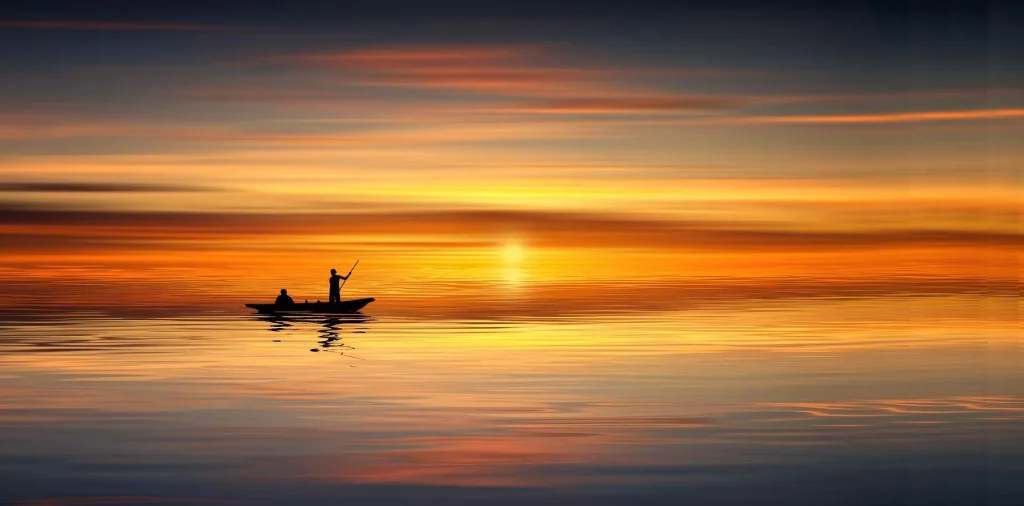Sunset on the River or Twilight River Chant, by Bai Juyi. The unnamed river is likely the Qiantang which flows through Hangzhou where Bai Juyi served as governor.*
The setting sun spreading from the center,
Half the river trembling, the other half is red.
I pity the third night of September,
Its pearl-like dew, bow-like moon.Sunset on the River, Bai Juyi
暮江吟
一道残阳铺水中
半江瑟瑟半江红
可怜九月初三夜
露似真珠月似弓mù jiāng yín
yí dào cán yáng pū shuǐ zhōng
bàn jiāng sè sè bàn jiāng hóng
kělían jiǔ yuè chū sān yè
lù sì zhēn zhū yuè sì gōng
September 820
In August, summer rolls along, day after day, hot, a blazing sun, at sunset, fiery red on the water. The absence of rain scorches the earth, cracks the soil. What a relief, when in September, the mornings are cooler, the leaves in the trees begin to show yellow, a sign that autumn is near. Bai Juyi could again enjoy a walk along the river at evening time.
Notes on Translation
Other translations color the river green and red. bàn jiāng sè sè bàn jiāng hóng. The difficulty arises from sè sè, 瑟瑟. It has a secondary meaning of being gem-like, i.e. emerald. A direct translation is trembling or shivering, the effect one sees when the waves ripple in the cool evening wind. Why pity? The Qiantang river is tidal. In the evening, a rush of water frightens the birds.
Kělían, 可怜 is, to me, quite clearly pitiful, not lovely as other translators choose. While the meaning of the poem is unclear, (Unless, that is, one is happy with pure description.), I would hazard that Bai Juyi laments the the absence of the Harvest Moon that will arrive later in the month. China celebrates one of its biggest holidays in mid-September, Zhongqiu Jie (中秋节), the Mooncake Festival.












